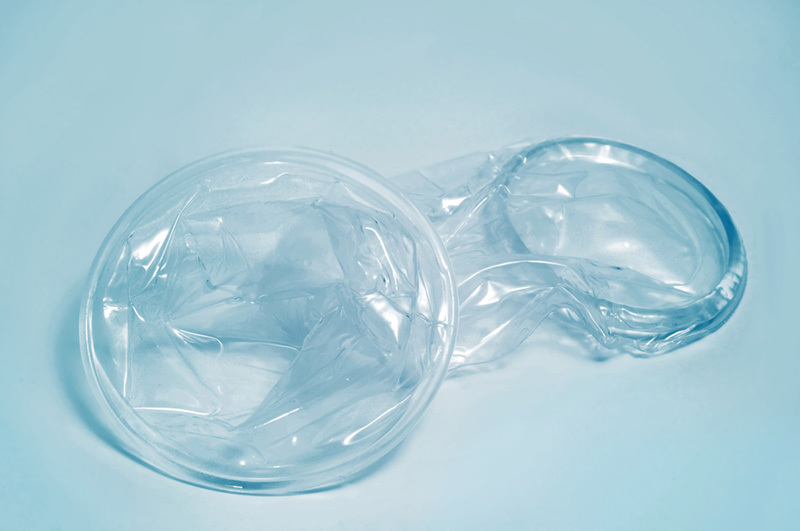What is an internal condom?
Learn more about internal condoms and if they are right for you

An internal condom is a sheath, made of a soft, fine material, which you insert into the vagina (like a tampon) to create a barrier against sperm. Unlike the condom, the internal condom can be used with oil and water based lubricants.
When taking the internal condom out of its packet, be sure not to tear it, as sharp fingernails and jewellery can easily tear a condom. It is also very important that you check the expiry date. If using an internal condom you do not need to use a regular condom also.
What are the benefits of the internal condom?
- Like the condom, it will help to protect you from unplanned pregnancy and sexually transmitted infections (STIs)
- It is made of polyurethane, which means it is twice as strong as latex rubber male condoms, making it less likely to tear or split
- Available without a prescription
- There’s no worry about using the right size because it is designed to gently line the vagina
- It is a good choice if you like sex to be totally spontaneous, as it can be inserted any time before you have sex
- The penis isn’t restricted in any way – once the internal condom is in place, you probably won’t be able to feel it at all
- No side effects
- Can be used with oil and water based lubricants
Things to keep in mind
- It is more expensive than the condom
- It takes practice to ensure that it is inserted correctly
- It may slip during sex
- The outer ring can be seen outside the vagina, which can interfere with foreplay or may make you feel uncomfortable
- It may reduce sensation during sex
- Creams such as those used to treat thrush can damage the condom
Where to buy an internal condom
Internal condoms are available in pharmacies, and for free from GOSHH in Limerick.
Protecting your sexual health when using then internal condom
There are many great options to help protect your sexual health, but none of them are 100% effective. Even if you use the internal condom every time you have penetrative sex, you are still at risk of getting genital warts and herpes, as these can be passed through skin-to-skin contact. Going for an STI check or taking a home STI testing kit with a partner before having sex, can be a great way of protecting yourself and those you have sex with against STIs and HIV. However, not all STI checks check for all STIs, so it is important to speak to your healthcare provider and ask them what are being tested for as part of your screening.
Discussing with your sexual partners the type of contraception or protection options available to you, and agreeing on a type that works for everyone involved can help to reduce the risk of pregnancy, STIs and HIV. Looking out for sores or symptoms on a partner’s genitals before having sex with them, can help to identify STIs that they may not be aware of. If you do see any signs that someone may have an STI, do not have sex with them until you know for certain it is safe to do so. Asking someone about their sexual health history is the responsible thing to do before having sex, and it should not be taken as an insult if someone asks you about yours.
Remember: The age of sexual consent in Ireland is 17. If you’re over 16, you can consent to medical treatment including any treatment or tests needed.
Feeling overwhelmed and want to talk to someone?
- Get anonymous support 24/7 with our text message support service
- Connect with a trained volunteer who will listen to you, and help you to move forward feeling better
- Whatsapp us now or free-text SPUNOUT to 50808 to begin.
- Find out more about our text message support service
If you are a customer of the 48 or An Post network or cannot get through using the ‘50808’ short code please text HELLO to 086 1800 280 (standard message rates may apply). Some smaller networks do not support short codes like ‘50808’.





